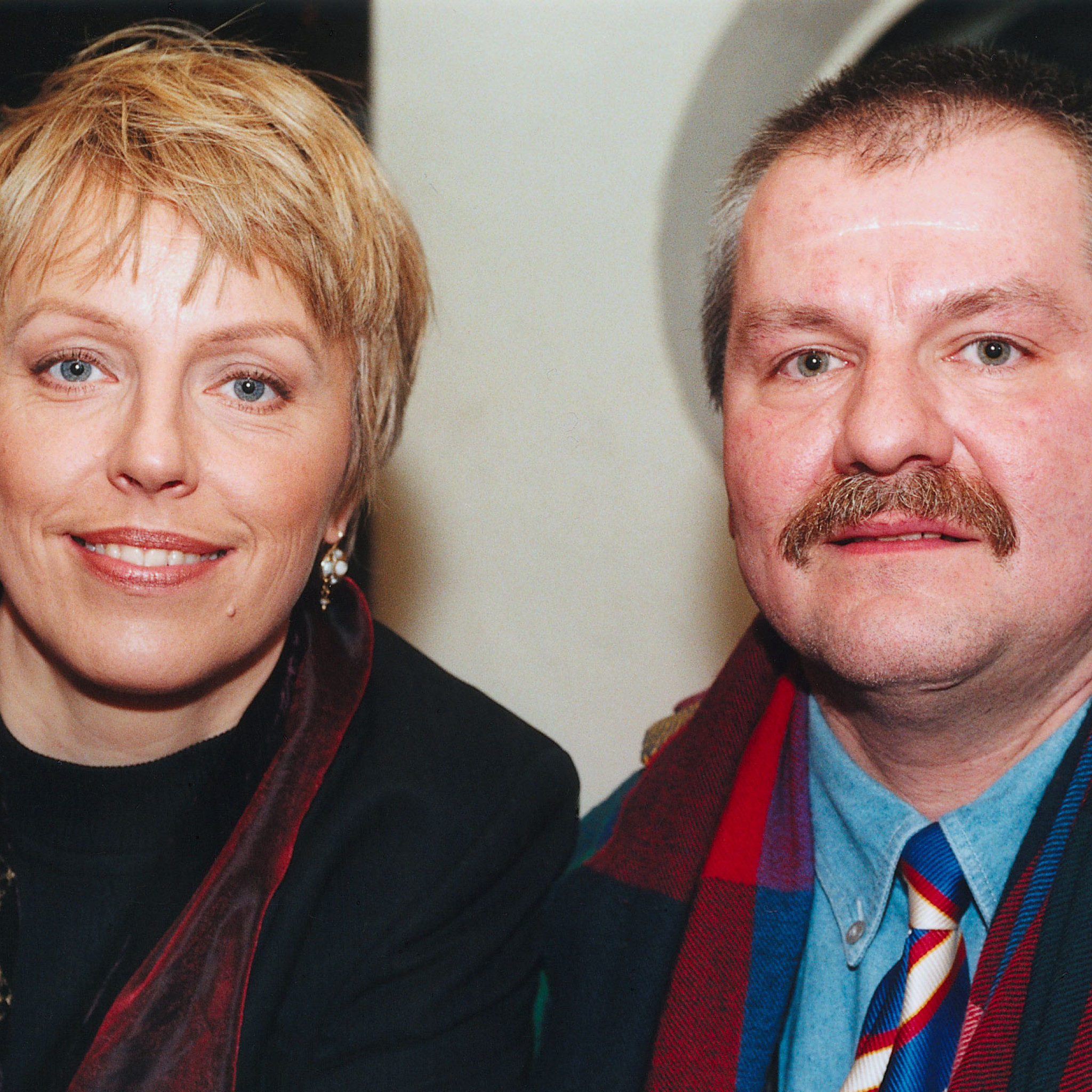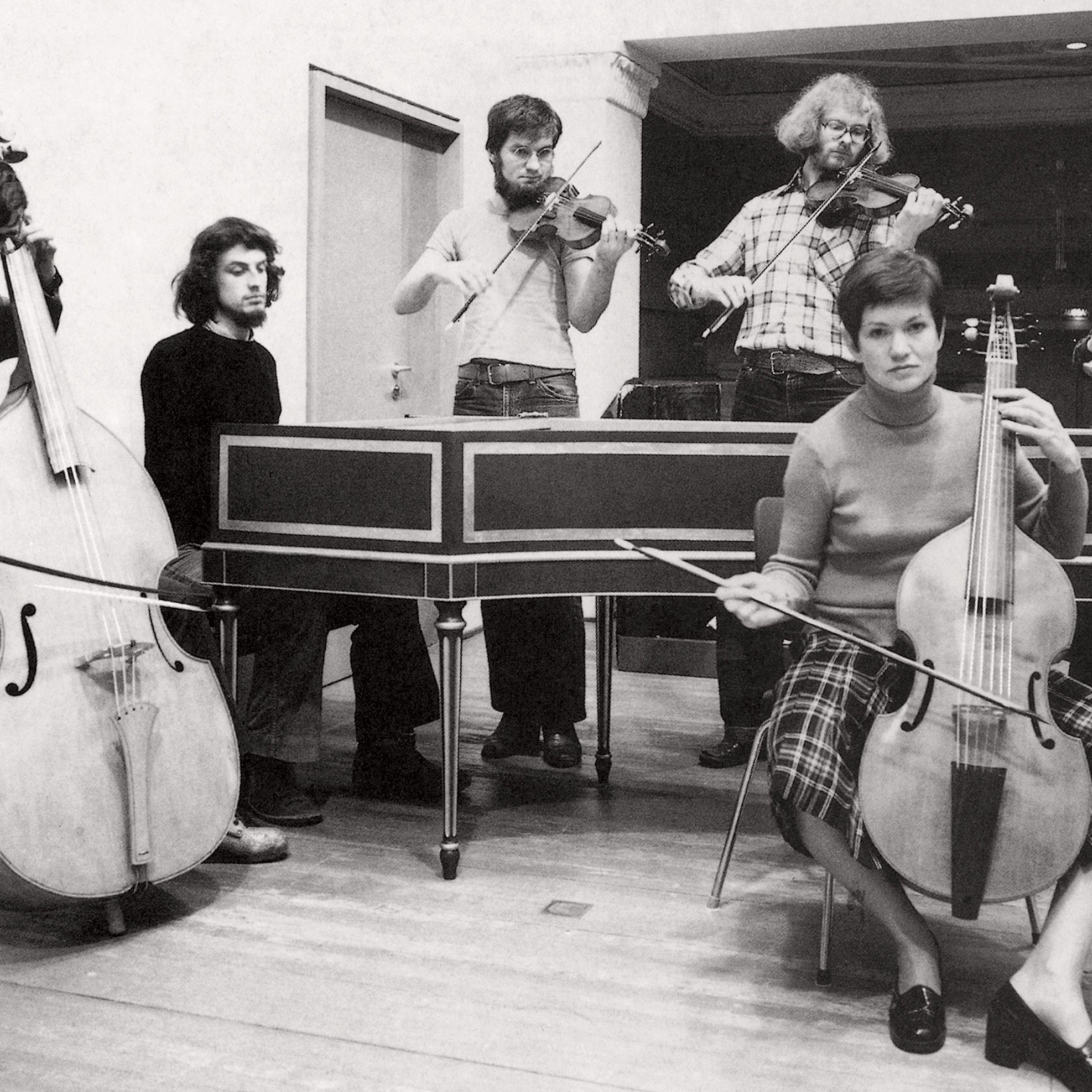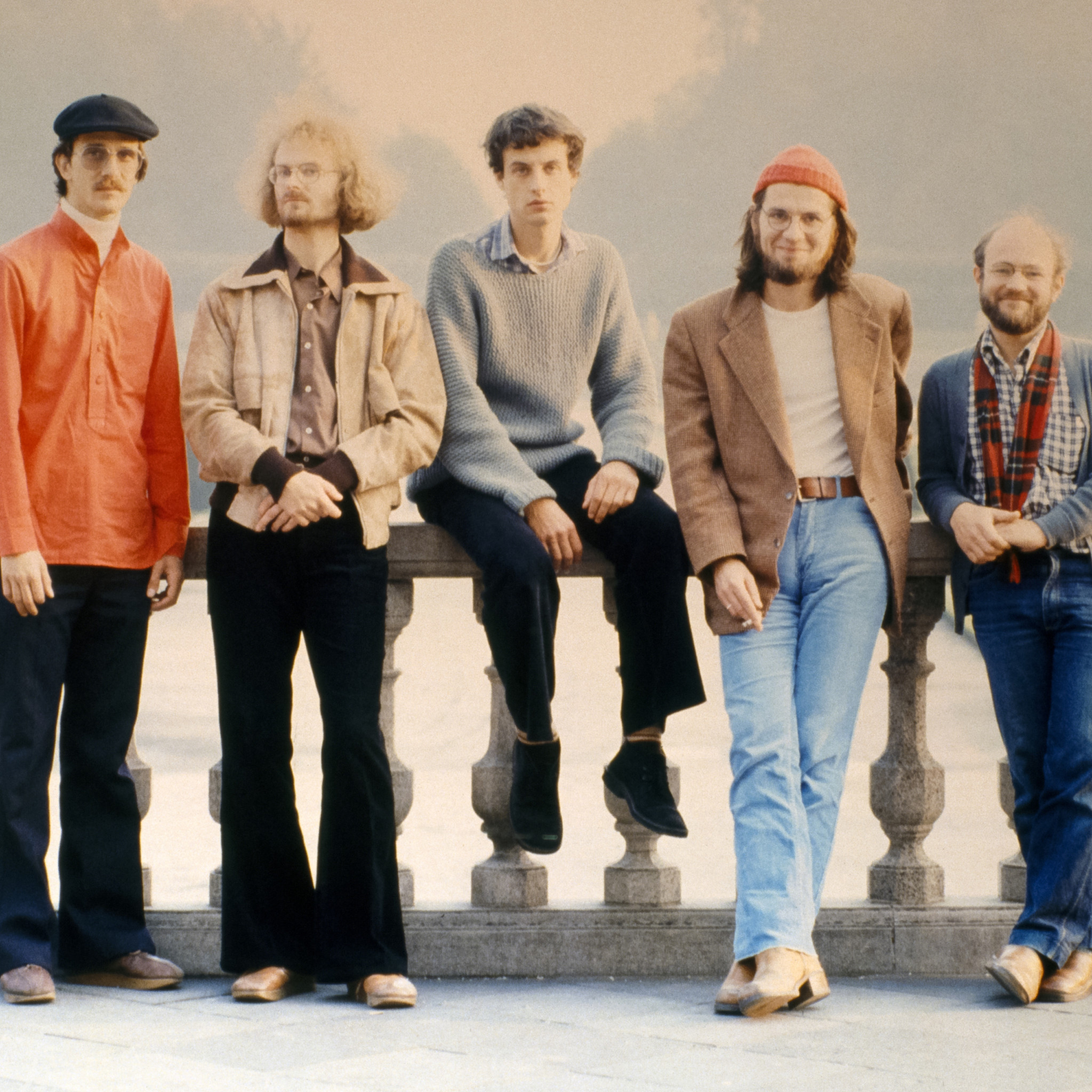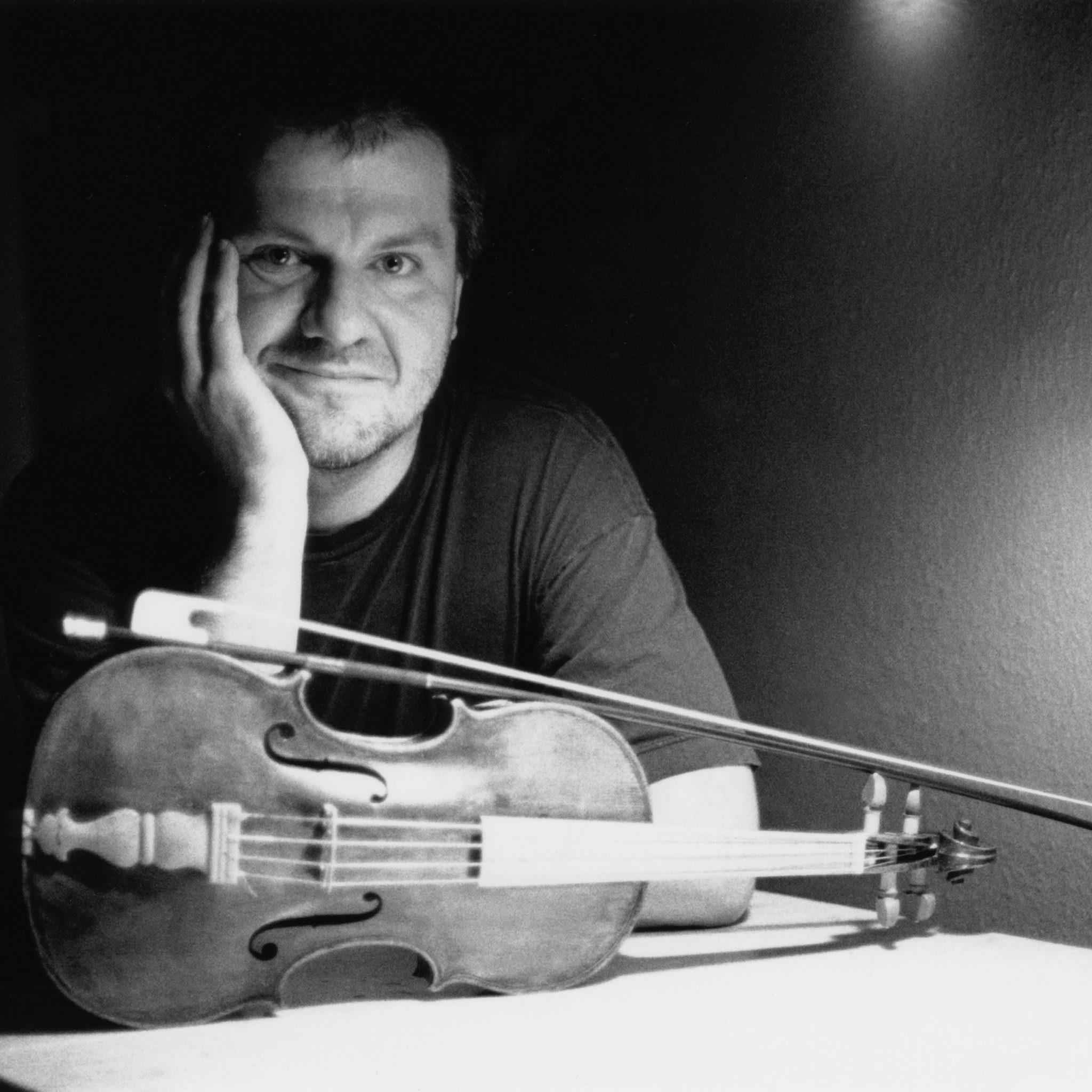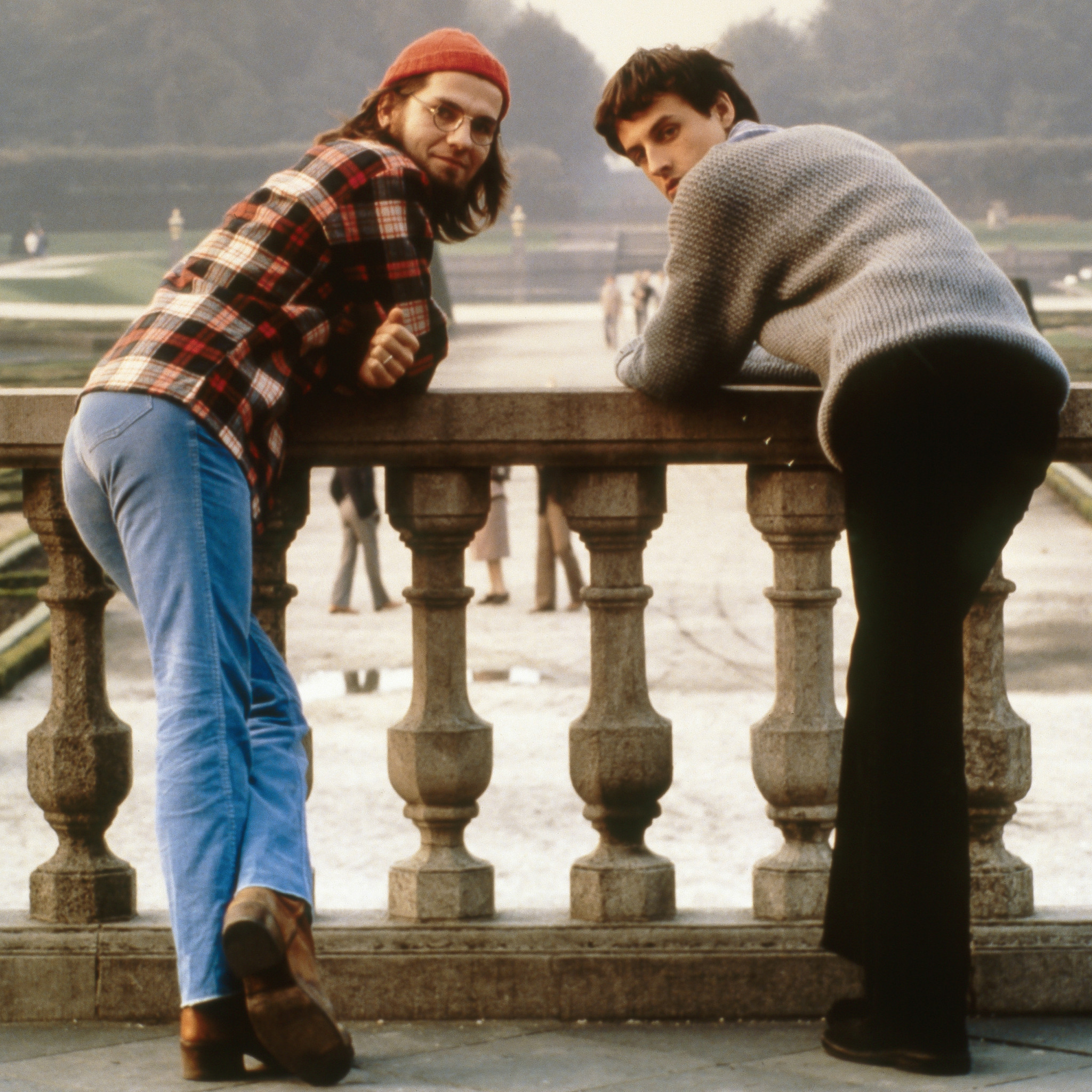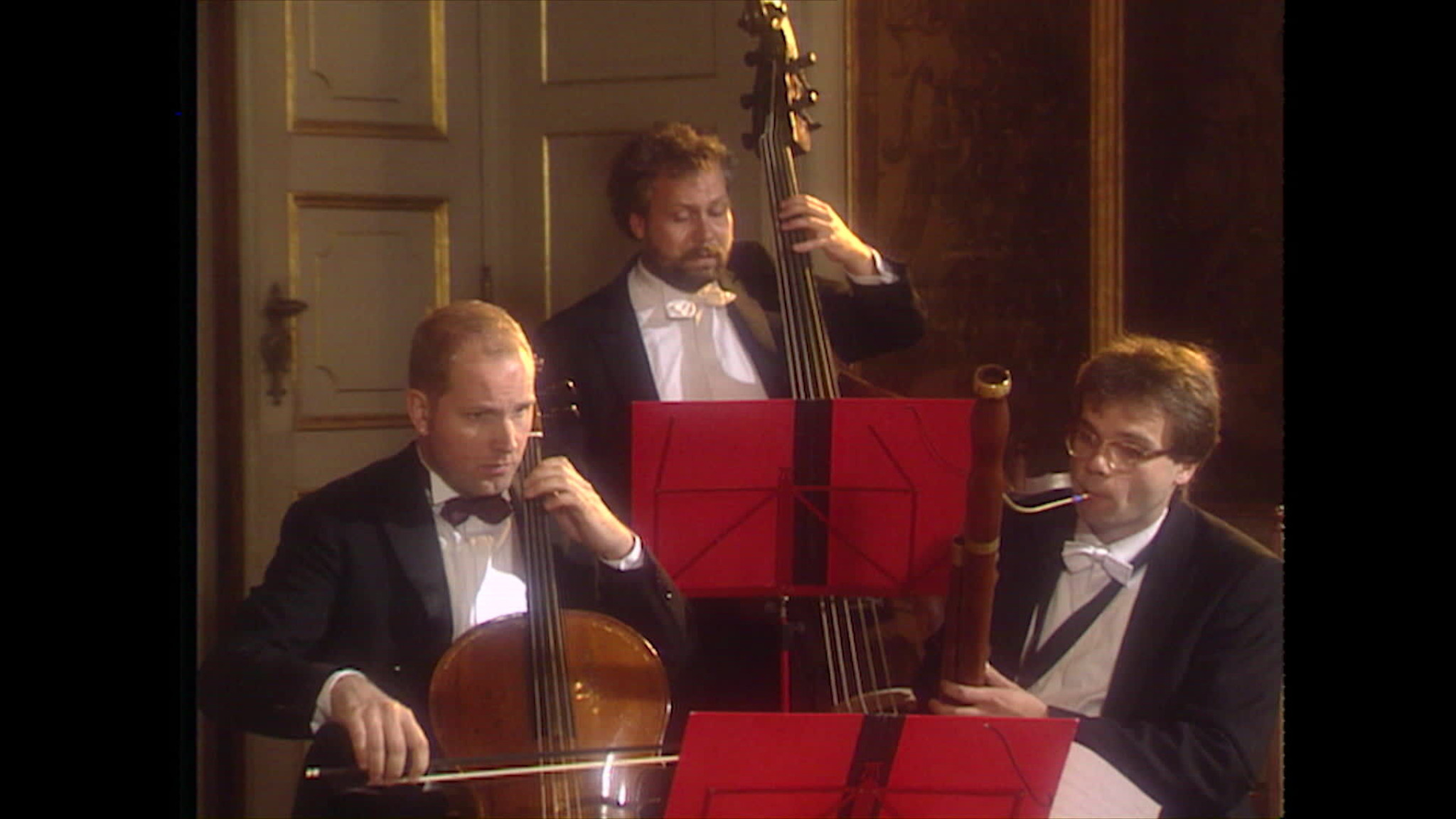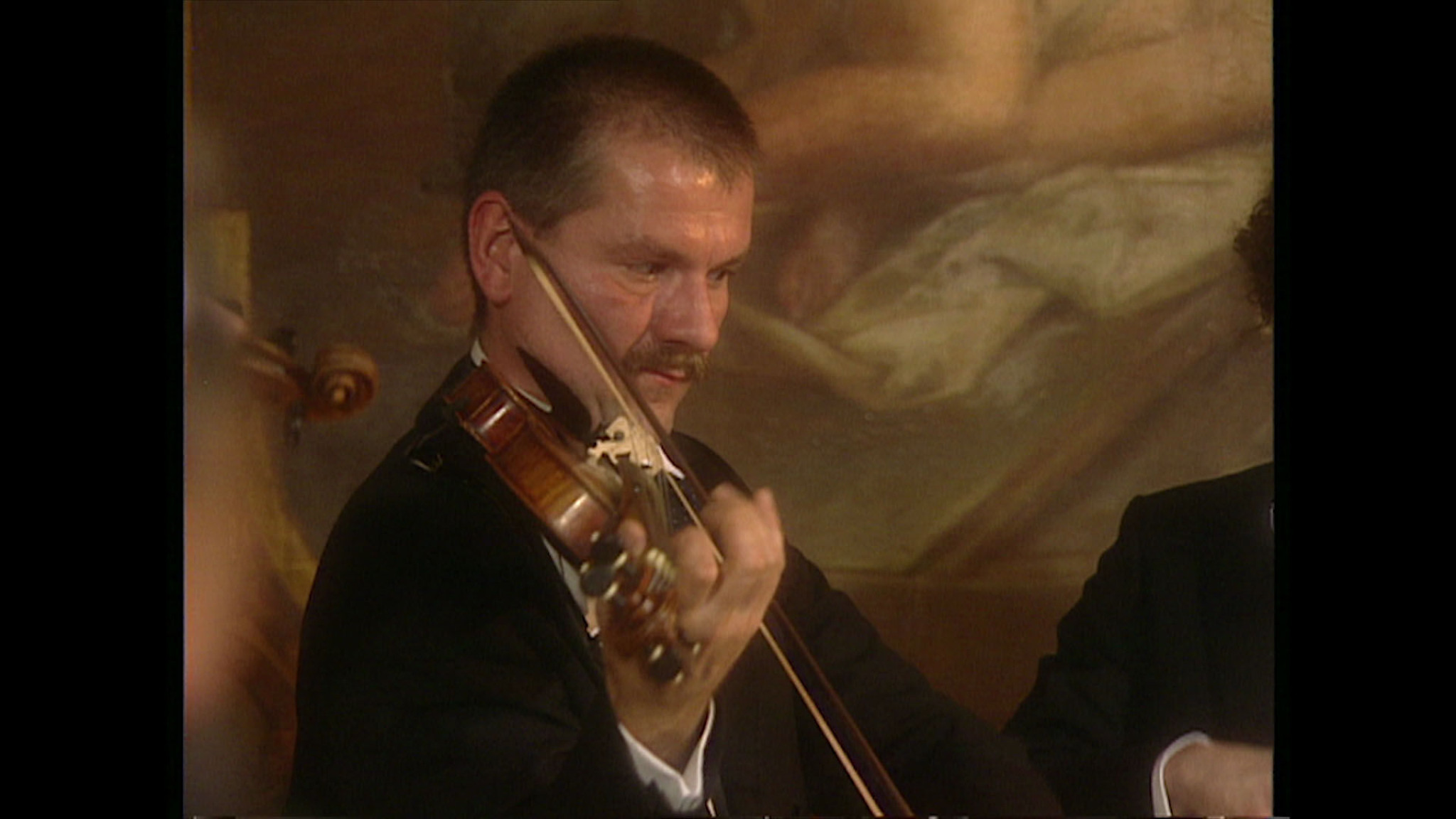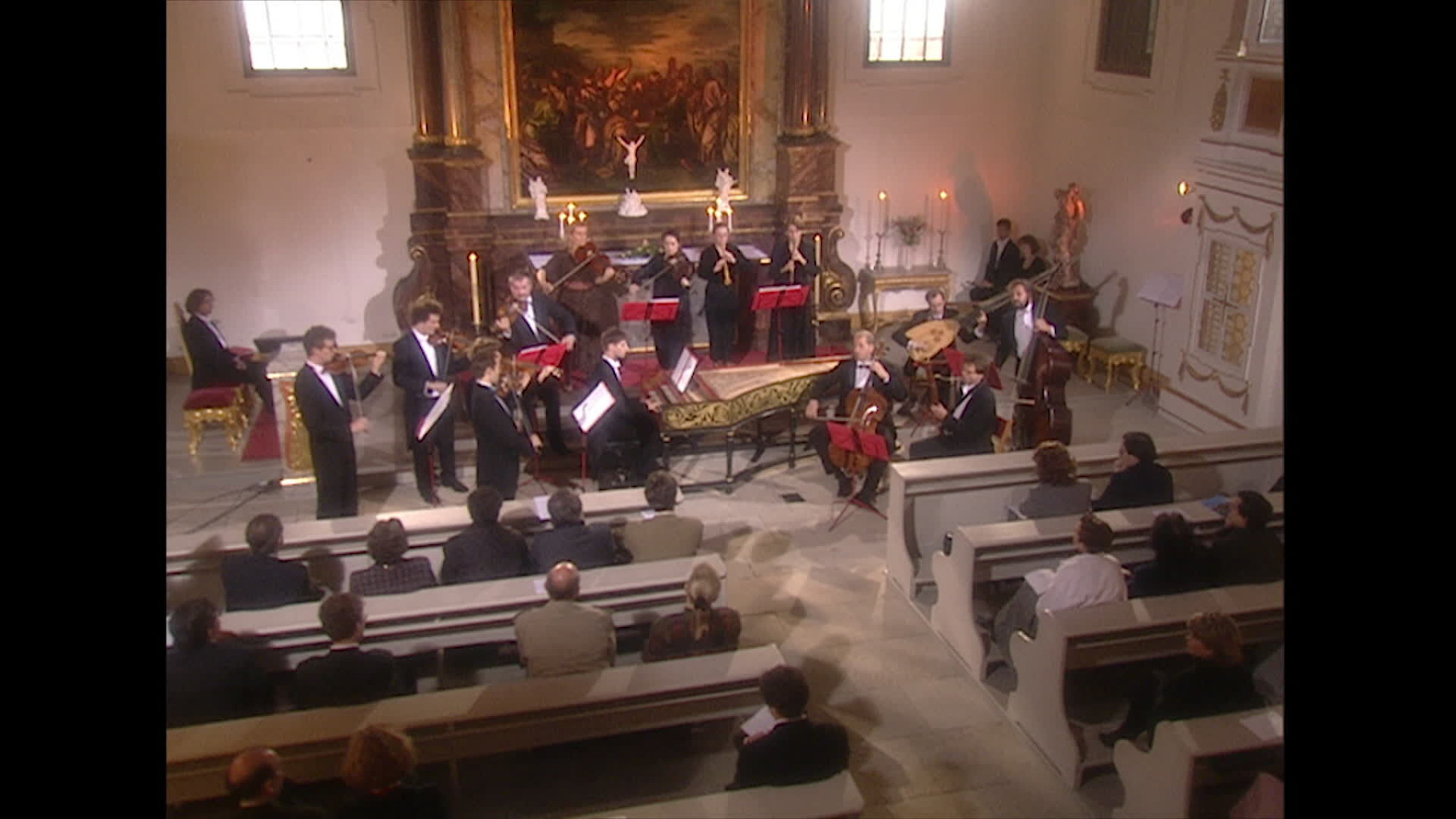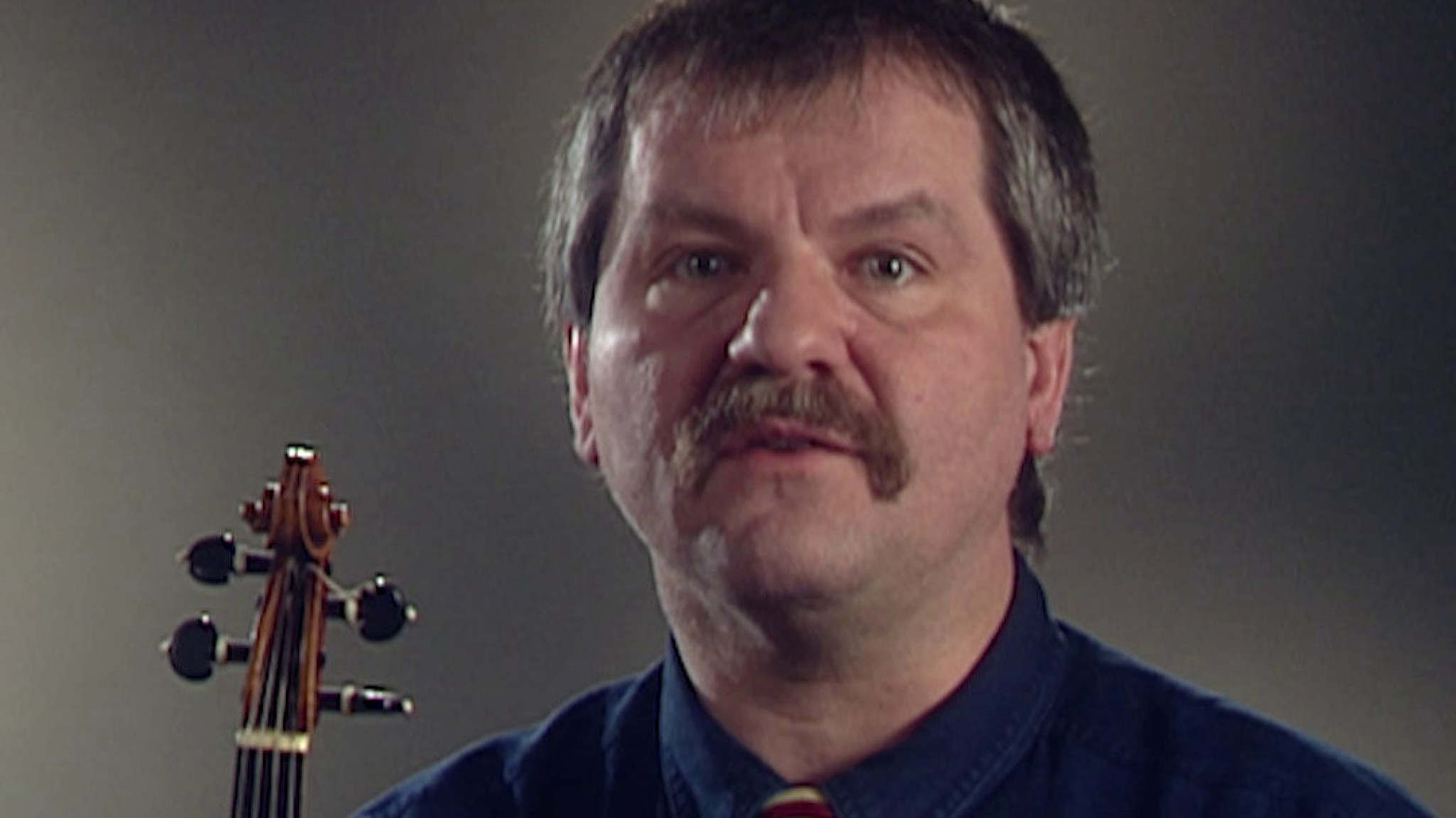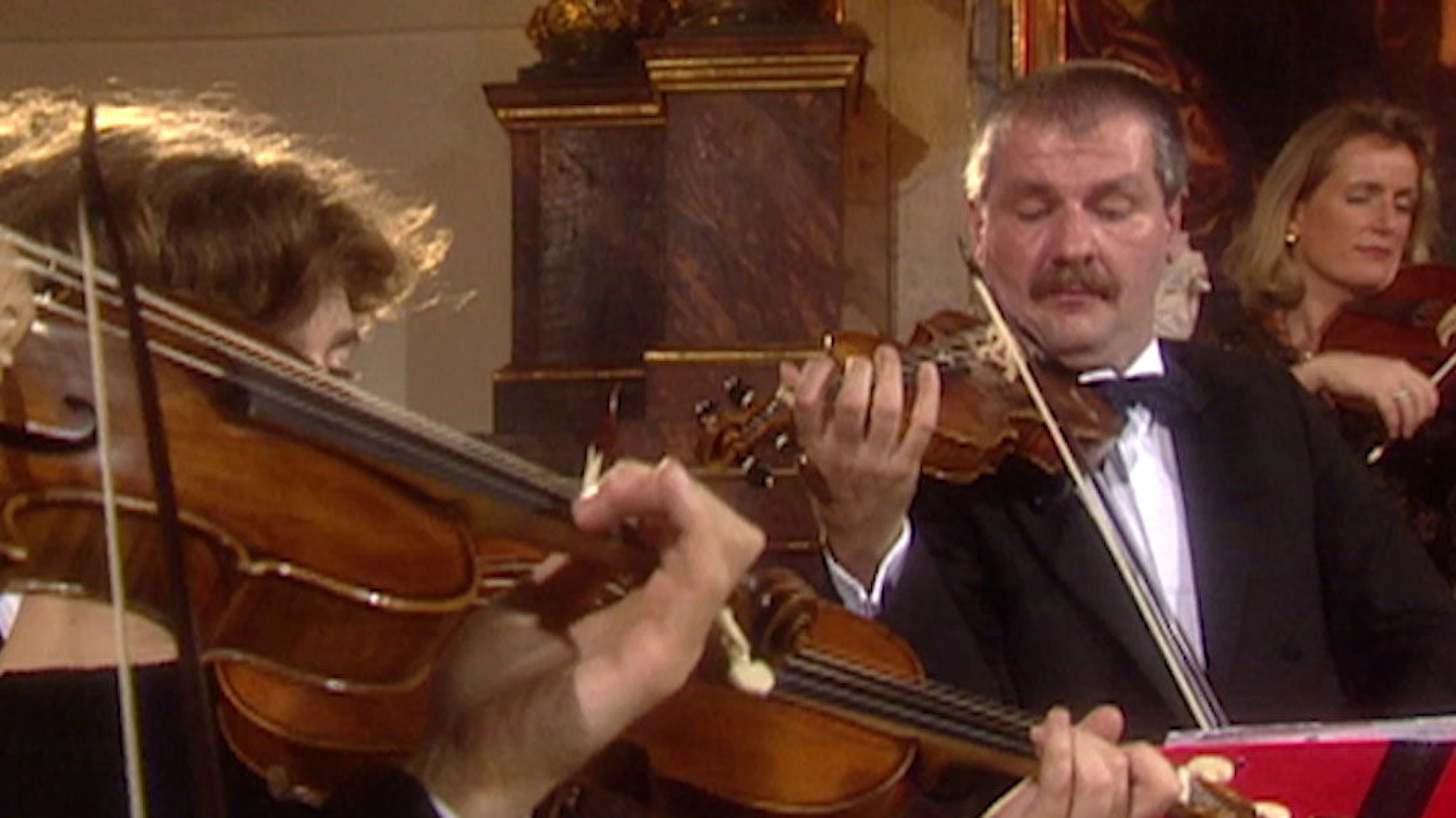In 2022, violinist, conductor and music scholar Reinhard Goebel celebrates his 70th birthday. When he founded his ensemble Musica Antiqua Köln in 1973, historical performance practice was no longer in its infancy, but with Goebel—it seems—it learned to walk.
In honour of the maestro’s birthday, DG brings together for the first time the complete recordings of Goebel and Musica Antiqua Köln for DG’s early music label Archiv Produktion on 75 CDs, including several CD premieres. It is accompanied by a 128-page booklet that contains an essay by Martin Elste, a fascinating new interview with Goebel and many unpublished photos to round out this complete and comprehensive portrait.
Three of the albums in the box (music by Leclair, by Clérambault and a selection French Rococo music) are being made available for the first time digitally (see below). In addition we re-issue the recording of Biber’s Missa Salisburgensis, where Goebel and Musica Antiqua Köln join forces with Paul McCreesh and Gabrieli, in the high quality spatial experience of Dolby Atmos®.
Released to digital for the first time
“I was a troublemaker”
Reinhard Goebel talks about the birth, rise and disbanding of Musica Antiqua Köln – and about himself
Mr Goebel, you’re about to turn seventy, and you’ve produced seventy-five CDs for Deutsche Grammophon. Did you plan that “numerologically” in advance?
Well, it even catches me by surprise. We didn’t enter the studio every week like other ensembles and tended to be responsible for the footnotes. For the first fifteen years we did odds and ends that no one else wanted to do. We practised diligently every day – if only for maybe half an hour – until the sparks flew. We were a full-time ensemble with up to 120 concerts a year. Hardly any other ensemble of our sort can say the same.
Why did the sparks fly?
I was a troublemaker. One colleague always handed out chocolate to calm things down. You see, I work all day long. We didn’t have friendships or animosities, but I can’t just put up with everything. And I didn’t have kids or drugs!
What made Musica Antiqua Köln so unique?
We were the only group in the world headed by a concertmaster rather than a harpsichord player or cellist. And I tried all the harder because of what so many groups lack – namely, training in musicology.
You were fetched to Archiv by its managing director Andreas Holschneider. How important was he?
I have to say that I loved him very much. He told me to restrain myself and not to worry too much. For he knew what can happen – namely, from the Amadeus Quartet: they always travelled separately and lived apart. Holschneider raised me. Taught me how to eat noodles and shrimp. He fetched working-class kids like Trevor Pinnock and myself. Gardiner was allowed to throw tantrums, but with me that would have come to a bad end. We debated and parsed everything with Holschneider. He went to our concerts: “Didn’t we have anything better?” he would ask. We were a hard sell because we had Köln in our name. But he wanted us anyway.
Back in 1973, when Musica Antiqua was founded, musicians who wanted to conduct early music had to establish their own ensembles. Did that apply to you, too?
Exactly. Besides, I was a hot-headed youngster and nobody else wanted me. When I asked Cappella Coloniensis whether a particular passage needed a trill, Franzjosef Maier, who was my teacher, would answer, “You’ll trill when I say so.” That was not for me! Maier didn’t like me; he considered me untalented. So I went to Saschko Gawriloff. I realized I had to do my own thing if I wanted to survive. And I definitely wanted to survive.
But you could have pursued a solo career!?
Unthinkable. I started far too late for that, at the age of twelve. You can never catch up after that. In India they’d say, “Wait for your next reincarnation.”
Your father was a railway stationmaster with cap, whistle and signalling disc – a “guiding profession”, one might say. Not so very far removed from conducting, wouldn’t you say?
You’re right. My father was a civil servant, like Carl Philipp Emanuel Bach. And I actually became my father’s apostle in matters of singlemindedness, orderliness and consistency. He forced me to take my A levels. Then he watched me fool around as a minor celebrity on the violin. I’m grateful to him.
Was period performance practice the going thing for you back then, or how did you come to it?
The walls of my first violin teacher were covered with family trees, with Corelli, Leclair and all the rest. Locatelli, for example, came from Corelli. I stood in front of them, transfixed. In contrast, when I had to play Schubert I began to cry. I couldn’t put up with it for long. And I had an inborn aversion to anything after 1749. The object of my desire was Geminiani’s violin tutor.
You studied Baroque violin with Marie Leonhardt, the wife of Gustav Leonhardt. Did your task consist of forgetting again everything that had been painstakingly acquired?
Not at all. Marie Leonhardt was a modern violinist who’d studied with Max Rostal. She knew something about vibrato and finger motion. The whole business of what’s called Baroque violin today – from the legs to the buttocks to the back – was terra incognita to her. Of course when things got serious she’d say, “Rijnhardt, you’ll have to ask my husband!” Frau Harnoncourt always said the same thing. Yet she knew that her husband couldn’t bear the sight of me. He wanted hierarchy; she didn’t.
Musica Antiqua focused on Bach, Biber, Telemann and the German Baroque on the one hand and the French repertory on the other. Did you have trouble relating to the British?
Do you mean Handel?! The ensemble’s structure determined what we could play. Recorder, two violins and strings. Vivaldi was persona non grata, for I Musici were still in top form. The French, in turn, didn’t really know their own Couperin. I was also the first to light on Rebel. Then came German chamber music before Bach, thanks to our series on West German Radio. Back then people didn’t want Heinichen from us; that only happened after the Reunification, but then with all the more success. Back to your question: Purcell wasn’t my cup of tea. Protestant Germany – and I say this as a Catholic – is the true cradle of music.
Did you have a specific goal with Bach?
No, I didn’t have an image of Bach. That only changed through my contact with Christoph Wolff, beginning in 1982. Today I picture Bach as incredibly orthodox. His teachings are hermetic – no preset breaking points. He’s much, much less galant than Telemann. At the same time I have to admit that I’m not so strict myself, owing to my background. I can’t deny my Rhenish roots.
Musica Antiqua Köln disbanded in 2006. A sad occasion?
No, I’d prepared for it. At fifty-five I didn’t want to play violin any more. And I didn’t want to risk my legacy, you know. I wanted the ensemble to end with everything shipshape.
Before then a focal dystonia forced you to relearn everything from left to right. Wasn’t it a sort of foregone conclusion that you’d have to stop?
I wouldn’t say so. Admittedly I soon discovered that it wouldn’t work, because I’m righthanded. I was living on borrowed time. When violinists do that they soon turn to drink. Violinists reach their zenith between the ages of thirty-two and thirty-five; after that, it’s downhill. Anyone who experiences what happened to me has to take it as a serious warning. Conductors get pains in the back, trombonists lose their teeth. It’s a sign that enough is enough.
Do you miss your violin today?
The only thing I miss is practising. I simply loved to practise. Today I could almost say, “I hate music, but I love to conduct.”
Since 2010 you’ve been Nikolaus Harnoncourt’s successor at the Salzburg Mozarteum. Where do you differ from him?
I take a different analytical path. I believe Leopold Mozart once told his son, “My boy, you must always write down exactly what you want to get.” That said, I’m intent on reassessing what I’ve read. Knowledge can deteriorate. Questions of tempo matter. But it might be that we’re all on the wrong track.
Today you live in your hometown of Siegen. Are you on good terms with your roots?
After shopping in Nollendorf Square in Berlin I’m utterly exhausted. But in Siegen I’ve got all my books, the walls are plastered with Rubens, my girlfriend Bine used to live in the same building. And you know what: I don’t need any outside entertainment. I offer entertainment, and I love peace and quiet.
Interview: Kai Luehrs-Kaiser Translation: J. Bradford Robinson
